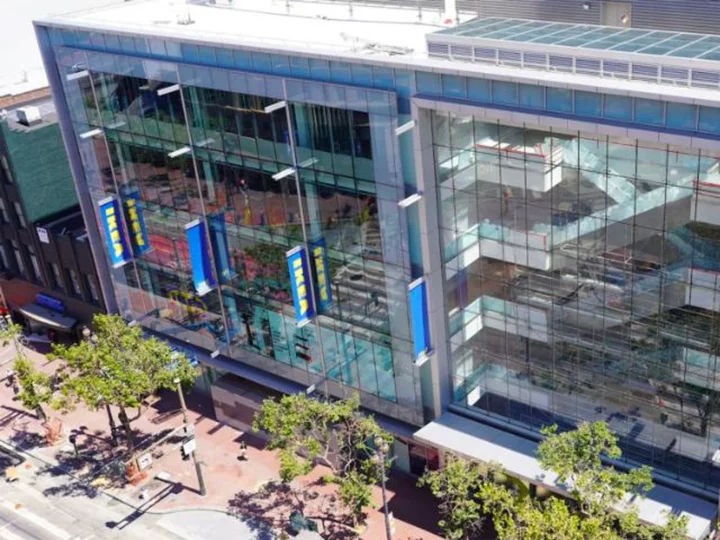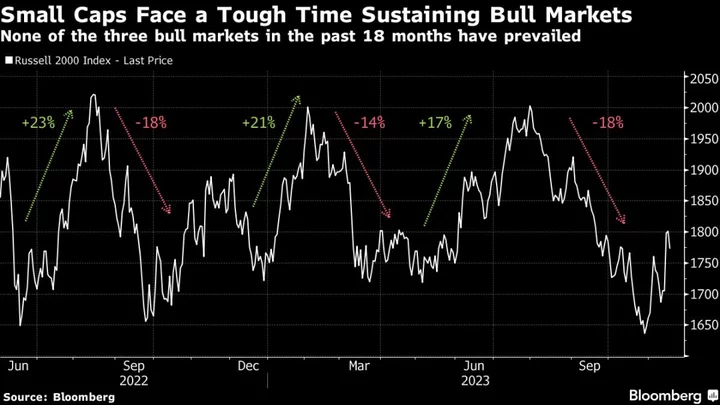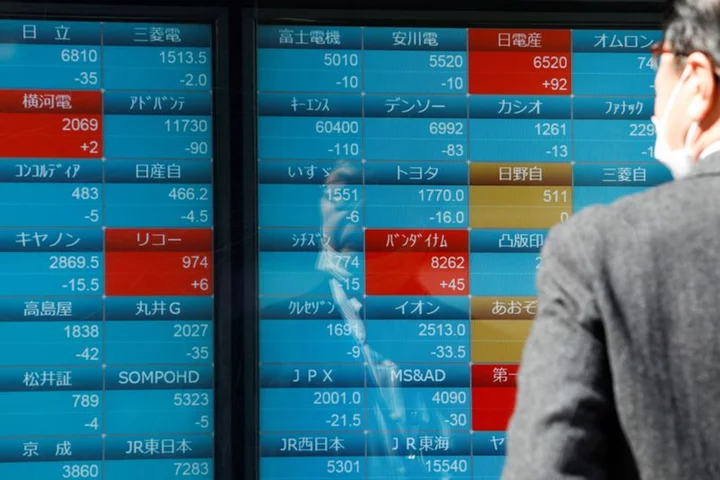Ikea is opening a new store in downtown San Francisco Wednesday, bucking the trend of retailers closing in the city.
Ikea will be the anchor tenant for a new mixed-use development on Market Street with retail, offices, restaurants and entertainment.
City leaders are hopeful that the home furniture store will draw shoppers to downtown San Francisco and support other businesses in the area at a time of store closures and rising public safety concerns.
Ikea's parent company purchased the six-floor glass building in 2020 for redevelopment, at a cost of $260 million. The acquisition was part of Ikea's strategy to open smaller stores in downtown districts after years of building sprawling locations on the outskirts of cities and in the suburbs.
Ikea will be the first retailer to open in the new development. Its three-level, 52,000-square-foot store will showcase 27 different room options for apartments and smaller city homes for customers. Shoppers will be able to buy and take home smaller products, but bigger furniture items like couches and bookshelves will only be available to order for delivery.
"The arrival of @IKEA is great news for the City's economic recovery that will bring local jobs and excitement to the Union Square area," San Francisco Mayor London Breed said earlier this month. "We are thrilled to welcome IKEA to be part of San Francisco's future."
Several attention-grabbing videos of store robberies and other incidents in San Francisco have led to public safety concerns. While violent crime statistics in San Francisco have remained relatively low in recent years, property crimes have risen since 2020, according to San Francisco Police Department data.
Activity this spring in downtown San Francisco, as measured by mobile phone use, was 68% below its pre-pandemic levels, the largest decline of any US city.
Since Ikea acquired the property in 2020, retail closures in San Francisco have spiked and the city's challenges have escalated. Around 40 stores have closed in San Francisco's Union Square area since 2020, according to a tally from Coresight, a market research firm.
In June, shopping mall operator Westfield announced it would give up control of its San Francisco mall, citing "challenging operating conditions in downtown San Francisco, which have led to declines in sales, occupancy and foot traffic."
A month earlier, Nordstrom, one of the biggest retailers in Westfield, said it would shutter both of its San Francisco stores.
Factors such as remote work, housing affordability, online shopping, crime and safety fears have hurt San Francisco and in-store shopping.
Office vacancies in the city are at a 30-year high, and many people have permanently left. San Francisco county's population declined by more than 60,000 people from 2020 to 2022, according to US Census estimates.
Meanwhile, San Francisco has grappled with a housing affordability crisis since before the pandemic, contributing to an uptick in the homeless population in the city's downtown.









